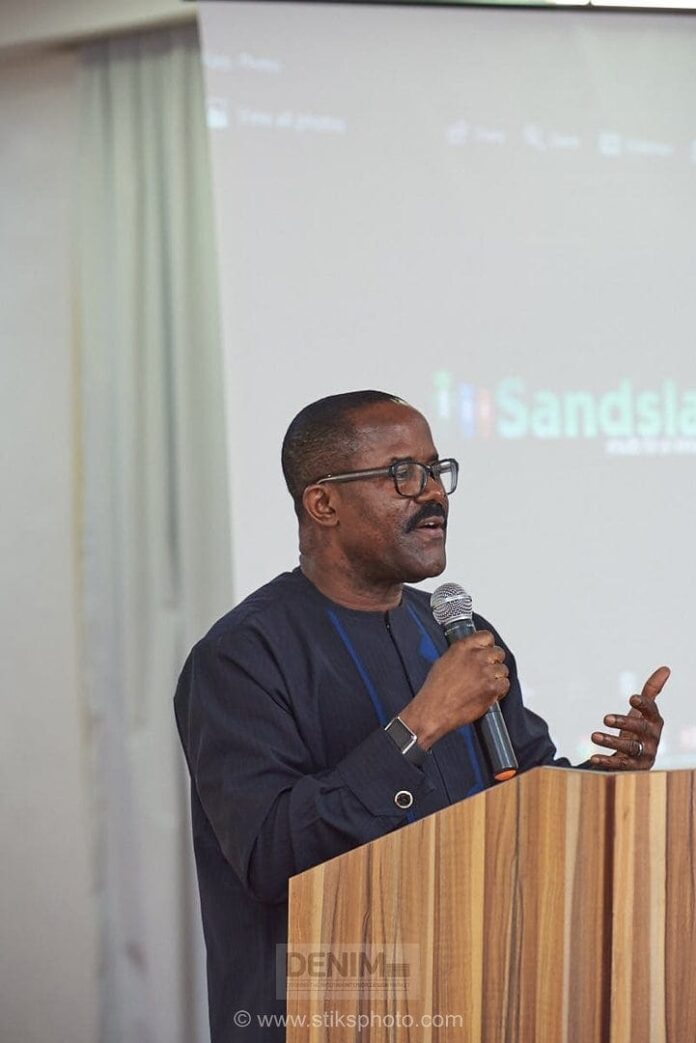Prof. Magnus Kpakol advocates state resource mining to combat poverty, boost human capital devt
Story from Vivian DANIEL, Abuja
During the 1st Series of the maiden edition of “My View: A Public Presentation Series by Prof. Magnus Kpakol” held on May 18, 2023, in Abuja, Prof. Magnus Kpakol, the CEO & Chairman of the Economic Growth and Development Centre (EGDC) and former Economic Adviser to President Olusegun Obasanjo, emphasized that allowing states to mine their natural resources and subsequently taxing them would help liberate nations from poverty.
He firmly believes that in an ideal society, nothing and no one should come between the states and their endowments.
The presentation aimed to promote human capital development and increased productivity across Africa is part of the global partnership and human capital development initiative of the Economic Center.
The event, called “My View Presentation Series,” is hosted in Nigeria quarterly and live-streamed worldwide, seeking to provide solutions to the numerous challenges faced by Africa.
Prof. Magnus Kpakol highlighted that Africa significantly lags behind advanced economies in economic competitiveness, largely due to a severe human capital deficiency gap.
He emphasized that human capital development encompasses various aspects such as character, trust, speed, love, good health, training and retaining, light/power, excellence, productivity, and righteousness.
Vivien Sar, the Director-General of EGDC, shared concerning statistics about Nigeria. The country’s unemployment rate stands at 33%, with youth unemployment at 43%.
Additionally, according to the Nigerian Finance Ministry, the Debt Service Revenue Ratio is 80.7%, while the World Bank reports it as 96.3%.
During a goodwill message, Prof. Mutullah from the University of Abuja advocated for the restructuring of school curricula across all levels in Nigeria.
He stressed the need to discard the curricula imposed by the country’s colonizers and move towards technology-driven curricula to bring about the desired change.
Nkechi Isaac, the Publisher of Science Nigeria and Communication Specialist, highlighted the importance of capacity building and skills acquisition even after graduating from university.
She pointed out that the prevalence of theoretical teaching over practical education in tertiary institutions contributes to Nigeria’s poverty index, as graduates often possess theoretical knowledge but lack practical skills.
Prof. Magnus reiterated that disobedience, ignorance, lack of the rule of law, generational poverty, weak economic freedom, poor investment in people, poor infrastructure, and corruption are the reasons why nations and their people remain poor.
He emphasized that most of these problems stem from within the nations themselves.
He stressed the importance of electing the right leaders and making government positions and offices less attractive, preventing individuals from seeking power solely for their own interests.
He further recommended a system where legislators in Nigeria are paid per sittings.
Follow the Neptune Prime channel on WhatsApp: https://whatsapp.com/channel/0029Va74ZvU2v1IqKByXoX3d
Do you have breaking news, interview request, opinion, suggestion, or want your event covered? Email us at neptuneprime2233@gmail.com


